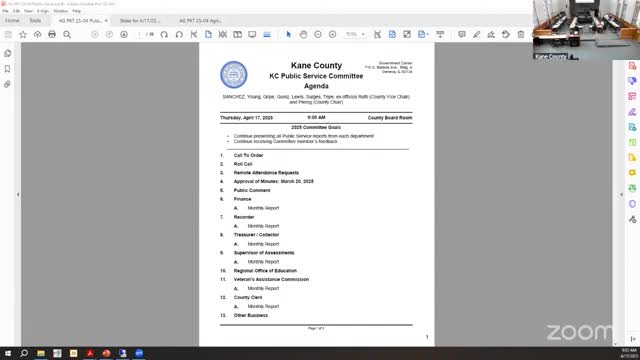Article not found
This article is no longer available. But don't worry—we've gathered other articles that discuss the same topic.
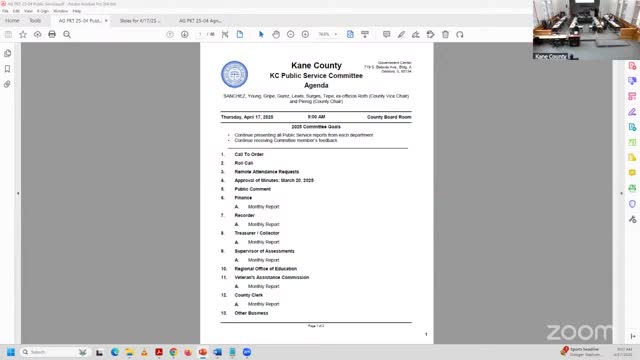
Public Service Committee approves minutes and places department reports on file
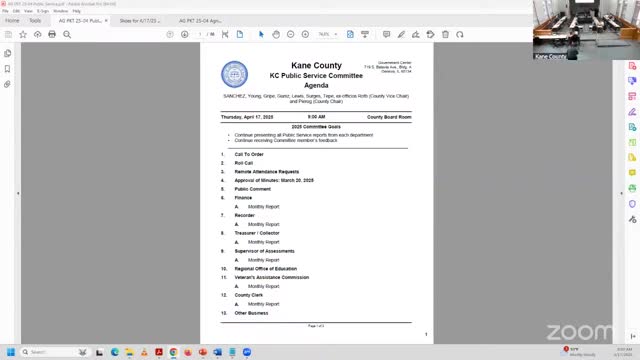
Veterans Assistance Commission reports $2.7 million in benefits and upcoming resource fairs
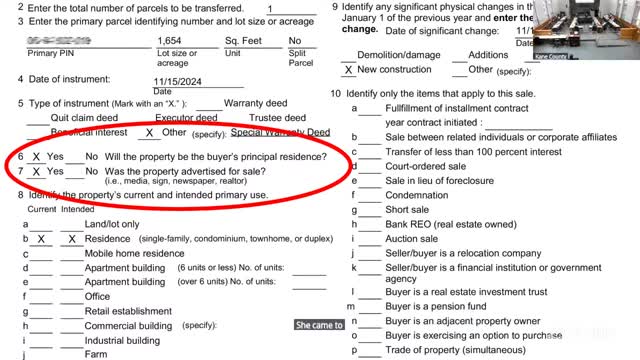
County clerk reports surge in passports and record consolidated-election turnout; Save Act not yet law
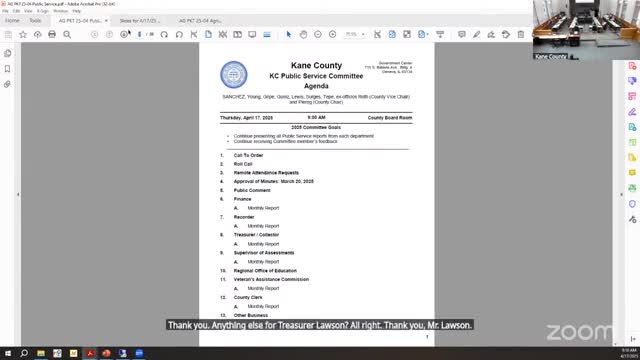
Supervisor of assessments outlines deed mistakes, potential fraud and limits of public records
